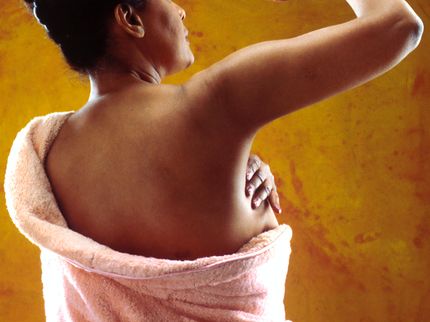Safer hair dyes and cosmetics to be made from Shetland seaweed
Scientists have launched a project to make hair dye out of seaweed from around the Shetland Islands.
Scientists at the University of Leeds are planning to extract chemical compounds from different species of seaweed and use them to develop a new range of hair dyes. The naturally sourced compounds will be used by scientists as substitutes for synthetic ingredients that can be found in most hair dyes currently on the market.
Many compounds in existing products are allergens and certain chemicals, notably p-phenylenediamine (PPD), have been linked to more serious long-term health effects.
The project also hopes to develop other safer and more environmentally friendly cosmetics, including hair treatments and skin care, from the compounds extracted from the Shetland seaweed.
"We are hoping to be able to offer people a real alternative to current hair dyes that contain chemicals which are known to be very bad for you," explains project leader Dr Richard Blackburn, a natural products researcher at The University of Leeds.
The good news is that the new hair dyes won't be green – scientists are confident that a range of colours including blonde, brown and red, and even black, can be made using the seaweed extracts.
"We can make a range of colours using these natural compounds because the variety of British seaweed species is so diverse," explains Professor Christopher Rayner, also at the University of Leeds, who is working alongside Dr Blackburn on the project.
"Seaweed is especially suited to being used in cosmetics because it has evolved very clever techniques to protect itself from weathering. And cosmetics are all about protection from ageing and the elements," says Dr Blackburn.
Laboratory work at the University of Leeds will focus on developing ways of isolating and extracting individual compounds found in seaweed that have these special properties in order to understand them better and explore their potential uses in other products.
The 2-year project is worth just over £500,000, including an investment of nearly £300,000 from the Technology Strategy Board plus from projects partners, including The Body Shop and Böd Ayre, Shetland seaweed farmers and processors based in Lunnaness.
"This could bring commercial and job opportunities to Shetland for a new high-value farming industry. It would be much better to extract the seaweed on Shetland rather than shipping elsewhere for processing," said Margaret Blance from Böd Ayre.
Most read news
Other news from the department science

Get the life science industry in your inbox
By submitting this form you agree that LUMITOS AG will send you the newsletter(s) selected above by email. Your data will not be passed on to third parties. Your data will be stored and processed in accordance with our data protection regulations. LUMITOS may contact you by email for the purpose of advertising or market and opinion surveys. You can revoke your consent at any time without giving reasons to LUMITOS AG, Ernst-Augustin-Str. 2, 12489 Berlin, Germany or by e-mail at revoke@lumitos.com with effect for the future. In addition, each email contains a link to unsubscribe from the corresponding newsletter.



















































